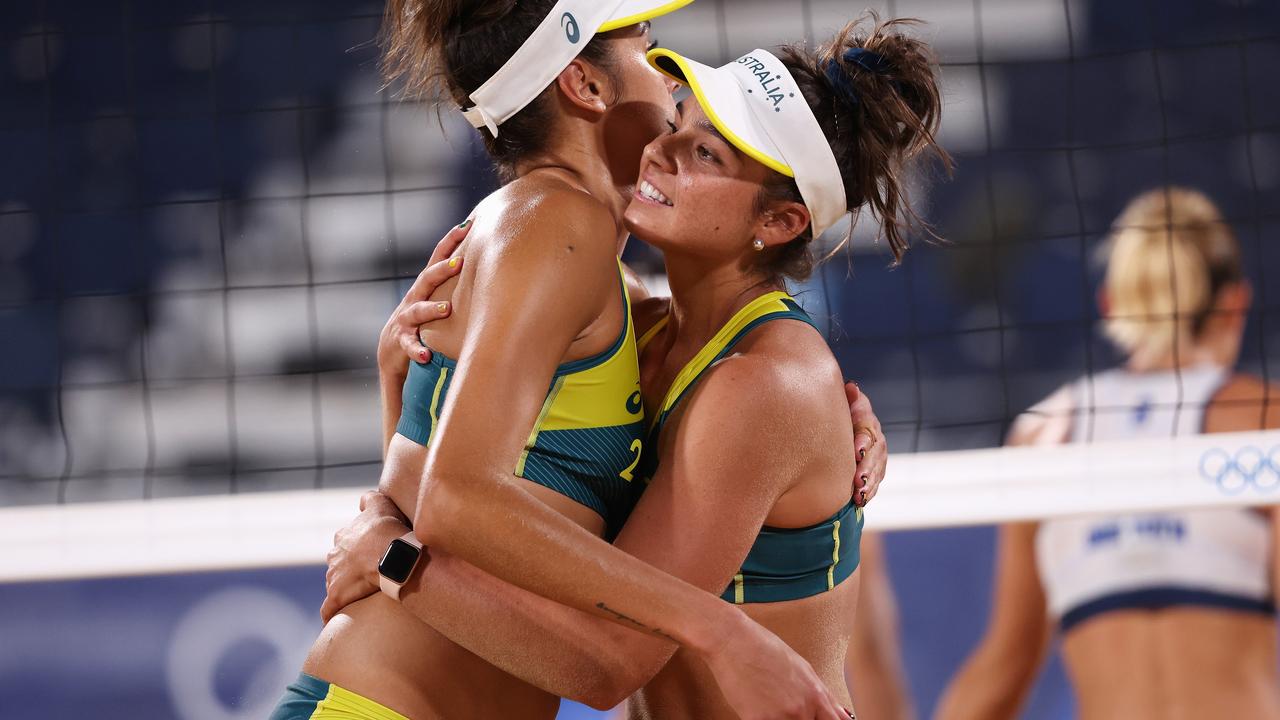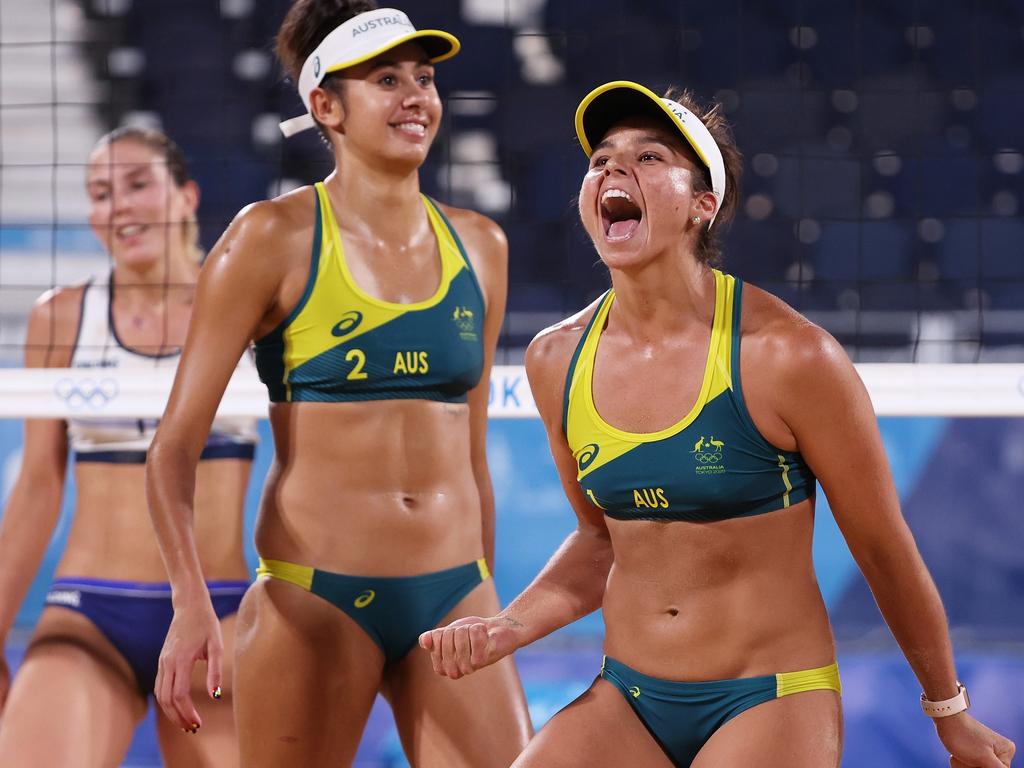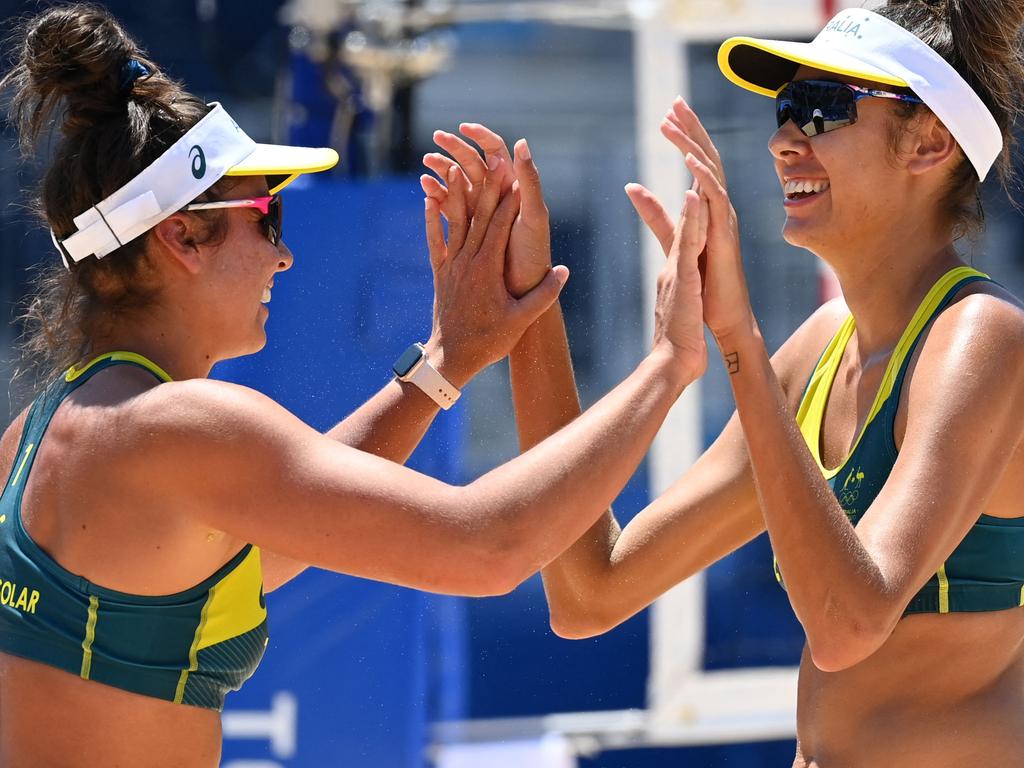Tokyo Olympics’ cringe-worthy attempt to explain Australian culture
In a sign of just how weird things are in Tokyo, an Aussie trying to explain local lingo to a confused foreigner was passed off as entertainment.

The pandemic has thrown up plenty of challenges for Olympics organisers but just like the nightclub that tries a little too hard to convince its patrons it really is cool, not everything has come off.
Beach volleyball is usually home to the best party atmosphere you can find at a Games. Think Bondi in Sydney 21 years ago or Copacabana in 2016, where international tourists (remember those?) lapped up the most beautiful beaches a host city had to offer.
Sadly Covid rejected everyone’s RSVPs to Tokyo and by now you’ve been told enough times how eerie these Olympics are without any fans in the stands. Some sports have accepted their fate and are letting the athletes take centre stage. But down at the beach volleyball, they’re still trying to throw a party.
Strobe lights installed in the four corners of the stadium flash in green, red, yellow and blue and the sort of music you’d find at a high school dance gets plenty of airtime, while an enthusiastic commentator lives every point.
Sure it’s a bit weird but can you really blame them for trying to generate a bit of atmosphere? We’ll let it slide. It’s better than sitting in awkward silence.
However, there was one moment when the cringe factor was turned up to 11 before the Aussie pairing of Taliqua Clancy and Mariafe Artacho del Solar stepped onto the sand on Wednesday night for their clash against Italians Marta Menegatti and Viktoria Orsi Toth.
The Australian announcer spent a good 30 seconds explaining the origins of “g’day” to a Japanese colleague because what else do you do when Australians are competing and there’s no ambient crowd noise to fill the silence before the action gets underway?
Trying to bridge the culture divide between the girls in green and gold and everyone else not from Australia, athletes and media in the stands were treated to a detailed explanation of how the traditional Australian greeting is an abbreviation of “good day”.

Asked about the strange atmosphere afterwards, Clancy said: “Once the game starts we don’t really notice it too much but I think sometimes, yeah we still miss the crowd that’s for sure.
“Because the crowd brings that extra level of adrenaline I think it is actually holding athletes’ nerves a bit more without the crowd and the screaming and yelling.
“We all love to perform, that’s why … we’re all Olympic athletes, we love the big stage but as soon as we step on the court we zone out and get on with it.”

Thankfully, there was nothing cringe-worthy about the Aussies’ performance. Artacho del Solar and Clancy booked their place in the knockout stage of the tournament with a second consecutive victory, beating their Italian opponents in straight sets.
They won a tight first set 22-20 then bounced back brilliantly in the second to go 15-11 up after staring down an early deficit. Soon it was 18-14 and a missed serve by the Italians put Australia within two points of the W.
Artacho del Solar and Clancy tightened up and lost the next four points, but finally converted their fifth match point to secure the second set 21-19.




